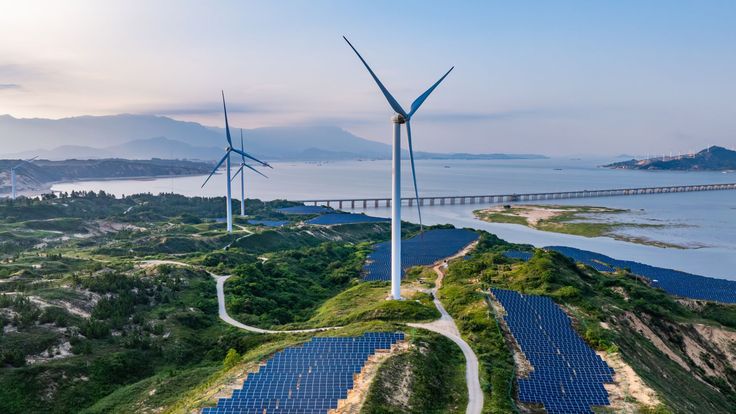The landmark decision of the English Court of Appeal in Star Hydro Power v National Transmission and Despatch Company [2025] EWCA Civ 928 confirms that English courts will not permit the New York Convention of the Recognition of and Enforcement of Foreign Arbitral Awards 1958 (“the Convention”) to be used to bring pre-emptive challenges to arbitral awards in foreign jurisdictions. The Court of Appeal confirmed that anti-suit injunctions will be used to restrain such proceedings, and is another in a string of recent rulings on anti-suit injunctions in foreign seated arbitrations. English courts have sole jurisdiction over enforcement challenges to arbitration awards made in England.
Background to the Dispute
Star Hydro Power, the Claimant, is a power production firm incorporated in Pakistan but owned by South Korean entities. The National Transmission and Despatch Company, the Defendant, is the Pakistan state electricity purchaser. On 8 March 2012 the Claimant and the Defendant entered into an Agreement regarding the construction, operation, and maintenance of a 147 MW hydro-electric power generation complex.
As part of the Agreement between the parties, the Defendant agreed to purchase electricity from the plant at a price of 7.0496 PKR/kWh based on a presumed total cost of the project of $362,392,000 USD. Article 18 of the Agreement provided that any dispute that may subsequently occur regarding these figures should be settled in the London Court of International Arbitration (“LCIA”).
Following rising costs during construction, in 2017 the Claimant sought adjustments of the project costs and tariff. In 2021, in accordance with the arbitration agreement, the Claimant started arbitration proceedings. Laurent Gouiffès sat as sole arbitrator throughout the proceedings.
On 7 May 2024 the LCIA declared that the total cost of the project was $378,312,000, creating a tariff price of 10.3632 PKR/kWh. The Arbitrator also held that as the Agreement between the parties was, at a legal level, purely commercial, questions of public policy raised by the Defendant do not influence contractual interpretation or the jurisdiction of the Arbitrator.
In August 2024 the Defendant issued an application in the Lahore High Court. Whilst stating that these proceedings existed solely for the partial enforcement of the award, the underlying reason for these proceedings was to effectively stifle the arbitral award. In response, the Claimant urgently issued proceedings in the London Commercial Court seeking an anti-suit injunction to prevent the Lahore proceedings from going any further.
Legal Framework
In its appellate judgment the Court of Appeal considered the Convention. Article I of the Convention provides domestic courts jurisdiction over foreign arbitral awards. Article III requires that awards granted overseas must be enforced in the same way as awards granted domestically. Article V concerns the grounds on which the enforcement of a foreign arbitral award may be challenged.
Outcome
Lord Justice Phillips gave the unanimous verdict of the three-judge bench. The Court of Appeal held that the Defendant’s challenge in the Lahore High Court was an attempt to avoid the English Court’s inherent jurisdiction, as challenges to London-seated arbitrations may only be brought to the English and Welsh courts. The Court of Appeal relied on its own decision in C v D [2007] EWCA Civ 1282, 1 All ER (Comm) 1001, where the Court held that parties choosing the seat of arbitration is analogous to the parties choosing the supervising jurisdiction. Any challenges to the enforcement of arbitration awards granted in England must be made under sections 67 to 69 of the Arbitration Act 1996 (read our full guide on the arbitration process in England and Wales).
Consequently, the challenge to the arbitration in the Lahore High Court occurred outside the supervising jurisdiction of the Agreement, and is therefore not valid and in breach of the Agreement. As reaffirmed by the Supreme Court in UniCredit Bank GmbH v RusChemAlliance LLC [2024] UKSC 30, [2024] 3 WLR 3659, courts will award anti-suit injunctions in these circumstances unless there are good reasons not to.
As a result, Star Hydro Power were granted the anti-suit injunction, preventing the continuation of the Lahore proceedings.
Effect
This decision will have the effect of strengthening the LCIA, clearing any doubt as to the enforcement of awards made in the seat of London. London will continue to be an attractive destination for arbitration, due to the certainty afforded by the courts in enforcing any award granted.
The Court of Appeal has provided welcome clarity to the relationship between the Convention and the Arbitration Act 1996. It is now clear that any challenges to the enforcement of an arbitral award granted in London can only be brought to the English courts. This is welcome news for firms, providing much-needed stability to international arbitrations and certainty to those that are London-seated.
More broadly, this judgment again displays why international agreements choose English law and the seat of London to govern and supervise international commercial agreements. The dependable, impartial nature of the jurisdiction provides the certainty needed for international commerce to flourish.
Please contact the International Arbitration team at Barnes Law for advice on arbitration jurisdiction.
Written by Barnes Law Managing Partner, Yulia Barnes.

